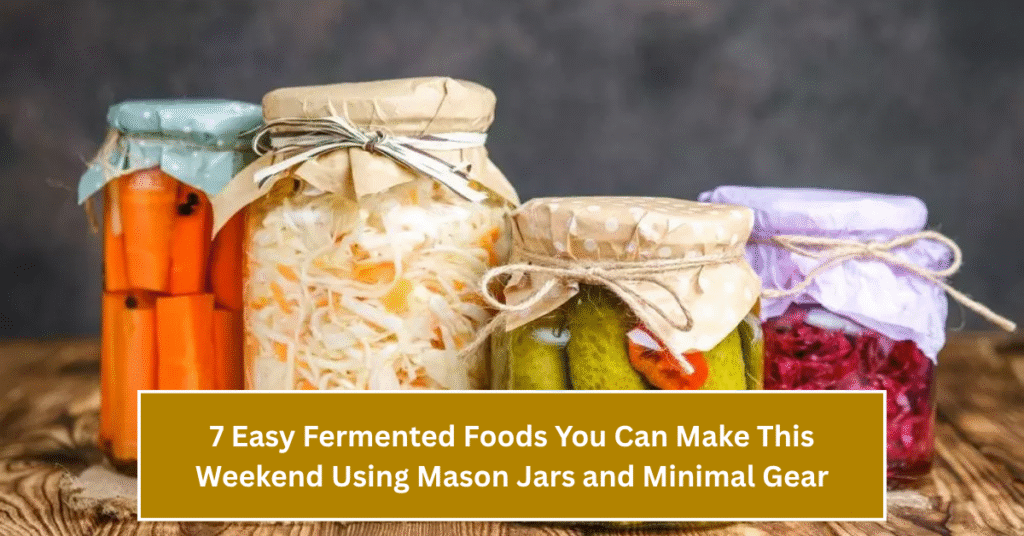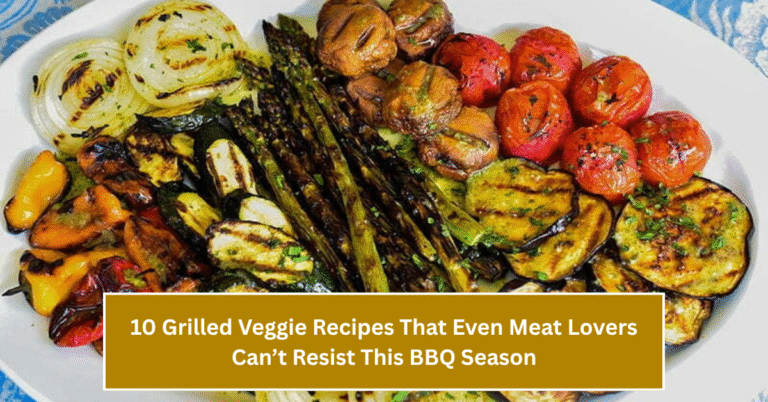
Fermented foods are not just delicious but also great for your gut health. If you want to start making these at home without much hassle, you’re in the right place. Using simple equipment like mason jars, you can easily prepare traditional fermented foods that boost your immunity and digestion.
This guide will walk you through seven popular fermented foods, including sauerkraut, kimchi, and kefir, with easy recipes perfect for beginners. Whether you live in a busy city or a small town in India, these beginner-friendly tips require minimal gear and time, making fermentation fun and doable.
What Are Fermented Foods and Why Should You Try Them?
This Article Includes
- 1 What Are Fermented Foods and Why Should You Try Them?
- 2 1. Sauerkraut: Simple Cabbage Magic in a Jar
- 3 2. Kimchi: Spicy Korean Delight Made Easy
- 4 3. Kefir: The Healthiest Homemade Probiotic Drink
- 5 4. Pickled Carrots: Crunchy Fermented Snack
- 6 5. Idli Batter: Traditional South Indian Fermentation
- 7 6. Fermented Garlic Paste: Simple and Flavorful
- 8 7. Yogurt: Classic Homemade Probiotic
- 9 Tips for Successful Fermentation at Home
Fermented foods are items made by encouraging good bacteria and yeast to grow naturally, changing the food’s taste and texture. This process helps improve digestion, increases nutrients, and supports a healthy gut. In India, fermented foods like idli and dosa batter are common, but there are many more you can try at home with very little effort.
By making fermented foods yourself, you know exactly what goes in. Plus, it saves money and reduces waste. All you need is a little patience, some fresh ingredients, and a mason jar or two to get started on your fermentation journey this weekend.
1. Sauerkraut: Simple Cabbage Magic in a Jar
Sauerkraut is fermented cabbage with a tangy, crunchy texture. It’s very easy to make and just needs cabbage, salt, and a mason jar. Simply chop the cabbage, mix with salt, massage it to release juice, pack it tightly in a jar, and let it ferment at room temperature for 5-7 days. The natural juices keep the cabbage submerged, which helps it ferment safely.
Enjoy sauerkraut as a side dish with meals or in sandwiches. Its probiotic warmth can help improve digestion and is a tasty way to add fiber to your diet.
2. Kimchi: Spicy Korean Delight Made Easy
Kimchi is a spicy, flavorful fermented vegetable dish, usually made with cabbage and radish. You can make a beginner-friendly version by mixing chopped cabbage, radish, green onions, garlic, ginger, salt, and red chili powder. Pack everything into a mason jar, pressing down to remove air pockets, and leave it to ferment for 3-5 days.
Kimchi is packed with vitamins and probiotics, making it a superfood for your health. It goes well with rice, wraps, or even as a spicy snack on its own.
3. Kefir: The Healthiest Homemade Probiotic Drink
Kefir is a fermented milk drink made with kefir grains that look like little cauliflower florets. You only need milk, kefir grains, and a jar. Add the grains to milk in a mason jar, cover loosely, and keep at room temperature for around 24 hours. Strain out the grains and keep the kefir in the fridge. You can reuse the grains for your next batch.
Kefir is great for boosting immunity with dozens of probiotic strains and tastes like a tangy, rich yogurt drink. It’s perfect for breakfast or as a refreshing drink anytime.
4. Pickled Carrots: Crunchy Fermented Snack
Pickled carrots are very simple to make and a delicious way to add crunch to your meals. Peel and slice carrots, then salt them and let them sit to release juices. Pack the carrots tightly in a jar with spices like mustard seeds or garlic. Cover with water and seal the jar. Let it ferment for 3-5 days at room temperature.
These tangy, crunchy carrots are excellent for salads, sandwiches, or as a healthy snack rich in probiotics and vitamins.
5. Idli Batter: Traditional South Indian Fermentation
Idli batter is a familiar fermented food for most Indians. It consists of rice and urad dal (black gram) soaked, ground, and left to ferment overnight or for 8-12 hours. Use a mason jar or any clean container. After fermentation, the batter rises and becomes fluffy, perfect for steaming soft idlis or making dosas.
This is a healthy, protein-packed breakfast or snack option that is gentle on the stomach and supports gut health.
6. Fermented Garlic Paste: Simple and Flavorful
Fermented garlic is easy to make and adds a deep flavour to your cooking. Peel whole garlic cloves and pack them in a clean jar. Add a little salt and cover the garlic with water. Seal the jar and let it ferment for 1-2 weeks in a cool, dark place. The garlic will become milder, less sharp, and full of probiotics.
You can add this paste to curries, chutneys, or even spread it on bread as a tasty, healthy addition.
7. Yogurt: Classic Homemade Probiotic
Making yogurt at home is straightforward. Heat milk, cool it to warm temperature, and add a spoon of live plain yogurt as a starter culture. Stir well, cover, and keep in a warm place for 6-8 hours until it sets. Use a clean mason jar or container for fermenting.
Homemade yogurt is cheaper, fresher, and free from preservatives. It’s perfect with meals, as raita, or enjoyed plain for a probiotic-rich boost.
Tips for Successful Fermentation at Home
Use clean mason jars and fresh ingredients to avoid unwanted bacteria. Make sure vegetables are fully submerged in their own juices or brine to prevent spoilage. Store jars in a warm place, but not in direct sunlight. Taste your ferments every few days and refrigerate when you like the flavor.
Fermentation is an exciting way to explore traditional foods, improve health, and reduce food waste. With just a few mason jars and basic kitchen items, you can start this journey today and enjoy homemade probiotics in your daily diet.






